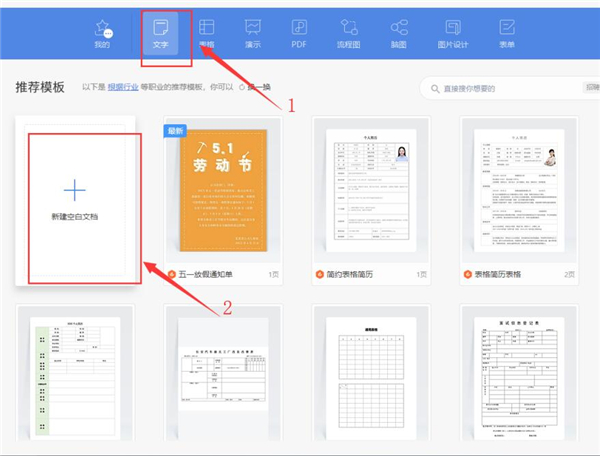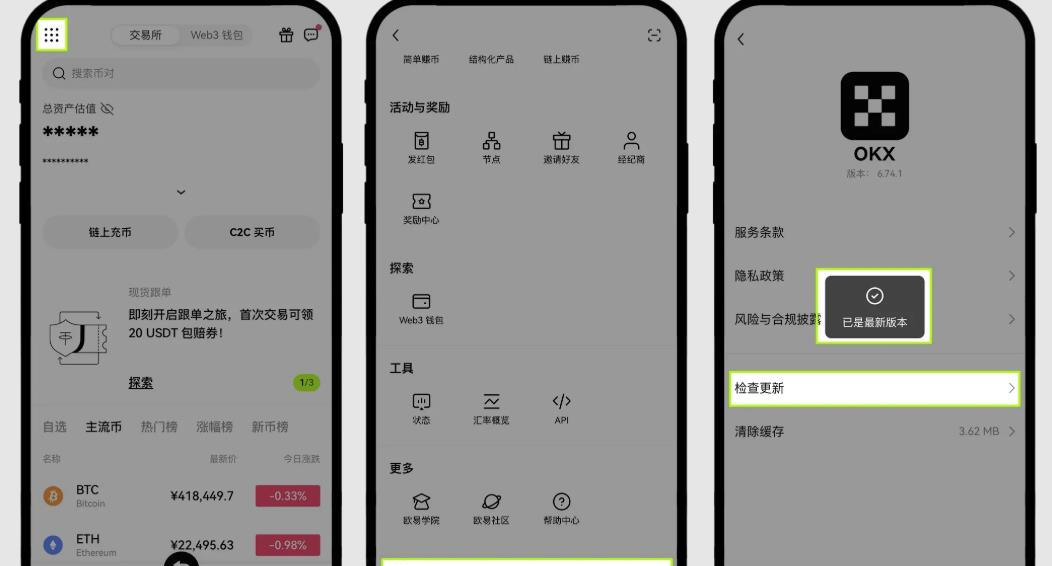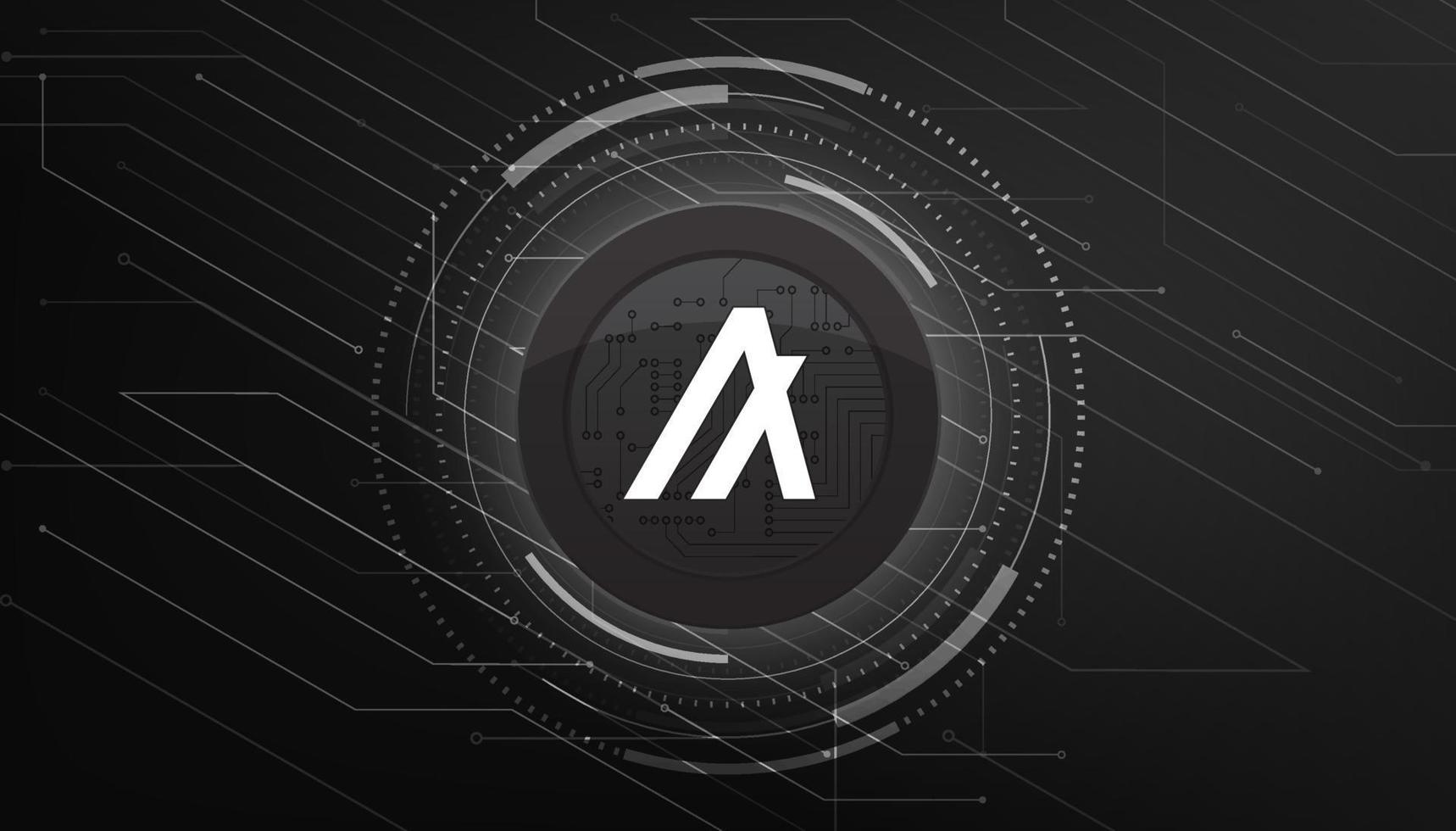Wlan可以连通,但是上不了网
时间:2007-04-12
来源:互联网
ping路由器 开路由器设置页都没问题,但是网页打不开 啥问题啊。郁闷中
作者: weillpan 发布时间: 2007-04-12
那位大虾可以指导Intel 2200无线网卡的驱动加载阿
官方网站上面的资料多的不知道从何入手 久经尝试还是失败了 求助各位了
IPW2200 Driver for Linux in support of:
Intel PRO/Wireless 2200BG Network Connection Adapter
Intel PRO/Wireless 2915ABG Network Connection Adapter
Copyright (C) 2004-2005, Intel Corporation
INSTALL
Version: 1.0.12
Date : February 17, 2006
Index
-----------------------------------------------
0. IMPORTANT INFORMATION BEFORE USING THIS DRIVER
1. INSTALLING IN YOUR DISTRIBUTION
2. BUILD/INSTALLATION OVERVIEW
3. GETTING THE SOURCE
4. KERNEL REQUIREMENTS - 2.6.8+
5. KERNEL REQUIREMENTS - Configuration
6. SYSFS
7. UPGRADING FROM PRIOR VERSIONS
8. BUILDING EXTERNAL (outside of the kernel tree)
9. BUILDING WITHIN THE KERNEL SOURCE TREE (not supported)
10. LOADING FIRMWARE VIA HOT-PLUG
11. LOADING THE DRIVER
12. COMMON TROUBLESHOOTING TIPS
0. IMPORTANT INFORMATION BEFORE USING THIS DRIVER
-----------------------------------------------
Important Notice FOR ALL USERS OR DISTRIBUTORS!!!!
Intel wireless LAN adapters are engineered, manufactured, tested, and
quality checked to ensure that they meet all necessary local and
**********al regulatory agency requirements for the regions that they
are designated and/or marked to ship into. Since wireless LANs are
generally unlicensed devices that share spectrum with radars,
satellites, and other licensed and unlicensed devices, it is sometimes
necessary to dynamically detect, avoid, and limit usage to avoid
interference with these devices. In many instances Intel is required to
provide test data to prove regional and local compliance to regional and
**********al regulations before certification or approval to use the
product is granted. Intel's wireless LAN's EEPROM, firmware, and
software driver are designed to carefully control parameters that affect
radio operation and to ensure electromagnetic compliance (EMC). These
parameters include, without limitation, RF power, spectrum usage,
channel scanning, and human exposure.
For these reasons Intel cannot permit any manipulation by third parties
of the software provided in binary format with the wireless WLAN
adapters (e.g., the EEPROM and firmware). Furthermore, if you use any
patches, utilities, or code with the Intel wireless LAN adapters that
have been manipulated by an unauthorized ***** (i.e., patches,
utilities, or code (including open source code modifications) which have
not been validated by Intel), (i) you will be solely responsible for
ensuring the regulatory compliance of the products, (ii) Intel will bear
no liability, under any theory of liability for any issues associated
with the modified products, including without limitation, claims under
the warranty and/or issues arising from regulatory non-compliance, and
(iii) Intel will not provide or be required to assist in providing
support to any third parties for such modified products.
Note: Many regulatory agencies consider Wireless LAN adapters to be
modules, and accordingly, condition system-level regulatory approval
upon receipt and review of test data documenting that the antennas and
system configuration do not cause the EMC and radio operation to be
non-compliant.
The drivers available for download from SourceForge are provided as a
part of a development project. Conformance to local regulatory
requirements is the responsibility of the individual developer. As
such, if you are interested in deploying or shipping a driver as part of
solution intended to be used for purposes other than development, please
obtain a tested driver from Intel Customer Support at:
http://support.intel.com/support/not.../CS-006408.htm
1. INSTALLING IN YOUR LINUX DISTRIBUTION
-----------------------------------------------
Since each distribution is different, we can not cover all of the steps that
may be required to install and configure your device for the particular
distribution you are using.
Please refer to the documentation for your distribution on issues
related to auto-detection and installation of the driver within your
environment.
2. BUILD/INSTALLATION OVERVIEW
-----------------------------------------------
Installation of the current ipw2200 driver involves several steps:
1) Get the source and firmware.
2) Check for certain capabilities in your kernel, and rebuild the kernel
if necessary.
3) Remove any old ieee80211 or ipw2200 drivers, and remove any kernel
configurations relating to them.
4) Build and install the current ieee80211 module.
5) Build and install the current ipw2200 module (uses files from ieee80211).
6) Download and install current firmware for your ipw2200/2915.
7) Read README.ipw2200 for much helpful information on how to use the
ipw2200/2915 hardware and driver.
3. GETTING THE SOURCE AND FIRMWARE
-----------------------------------------------
You can get the latest ipw2200 source code tarball from:
http://ipw2200.sf.net
ipw2200-1.0.4 and earlier versions included the ieee80211 driver within the
ipw2200 source tree. For current versions of ipw2200, starting with 1.0.5,
you must obtain ieee80211 driver from a separate project:
http://ieee80211.sf.net
Instructions for obtaining firmware can be found at:
http://ipw2200.sf.net/firmware.php.
You'll need to unpack the tarballs. ipw2200 and ieee80211 create
subdirectories, but firmware does not; you may want to put the firmware
tarball in its own directory before unpacking.
% tar xzvf ipw2200-1.0.12.tgz
% tar xzvf ieee80211-.tgz
% tar xzvf ipw2200-fw-.tgz
4. KERNEL REQUIREMENTS - 2.6.8+
-----------------------------------------------
The ipw2200 driver is currently maintained only for 2.6.8+ versions of the
Linux kernel, restricted in part by ieee80211 driver's requirement for 2.6.8+
(see INSTALL doc in ieee80211 source tree).
Due to time constraints, we can not maintain a 2.4 backport of the driver.
There is a family of 2.4 backport patches for some earlier versions of the
ipw2200 driver, provided by an external maintainer, but these patches are not
managed or maintained by the IPW developers. For a link to this site, and
some other sites that may be of interest, look at the ipw2200 links page:
http://ipw2200.sourceforge.net/#links
5. KERNEL REQUIREMENTS - Configuration
-----------------------------------------------
Your kernel must be configured and compiled to provide certain capabilities
needed by the ieee80211 and ipw2200 drivers.
In addition, kernel versions 2.6.14 and later are providing *old* ieee80211
and ipw2200 1.0 drivers as part of the mainline tree. If these are compiled
into your kernel (i.e. not as modules, but as built-in), you will need to
re-configure (using n to exclude/disable ieee80211 and ipw2200) and rebuild
your kernel before proceeding with your ipw2200 upgrade. See below.
You can verify that your running kernel is configured properly by
searching the following file for the #define entries described below:
/lib/modules/`uname -r`/build/include/linux/autoconf.h
If you need to change anything in your kernel configuration (e.g. using
make menuconfig), make sure that you also rebuild, install, and reboot to the
new kernel image before proceding with your ipw2200 driver upgrade. For help
or instructions on configuring and building the kernel, please consult the
documentation contained in your distribution.
MAKE SURE THAT THE FOLLOWING CAPABILITIES ARE ENABLED:
~~~~~~~~~~~~~~~~~~~~~~~~~~~
#define CONFIG_NET_RADIO 1
~~~~~~~~~~~~~~~~~~~~~~~~~~~
Failure to enable this will result in the Wireless Tools (iwconfig, iwlist,
etc.) not functioning. In 2.6.x, this is enabled via menuconfig:
Device Drivers ->
Networking support ->
Network device support ->
Wireless LAN (non-hamradio) ->
Wireless LAN drivers (non-hamradio) & WE
~~~~~~~~~~~~~~~~~~~~~~~~~~~
#define CONFIG_FW_LOADER 1
~~~~~~~~~~~~~~~~~~~~~~~~~~~
ipw2200 loads firmware via the Linux firmware hotplug capability (see later
section on firmware loading). In 2.6.x, this is enabled via menuconfig:
Device Drivers ->
Generic Driver Options ->
Hotplug firmware loading support
~~~~~~~~~~~~~~~~~~~~~~~~~~~
#define CONFIG_CRYPTO 1
#define CONFIG_CRYPTO_ARC4(_MODULE) 1
#define CONFIG_CRC32(_MODULE) 1
~~~~~~~~~~~~~~~~~~~~~~~~~~~
ipw2200 uses the WEP encryption and decryption algorithms provided
by the Linux kernel. To use WEP you must enable the Crypto library support
(CONFIG_CRYPTO) and the ARC4 cipher algorithm (CONFIG_CRYPTO_ARC4) via:
Cryptographic options ->
ARC4 cipher algorithm
You also need to enable the CRC32 (CONFIG_CRC32) algorithm via:
Library routines ->
CRC32 functions
~~~~~~~~~~~~~~~~~~~~~~~~~~~
#define CONFIG_CRYPTO_MICHAEL_MIC(_MODULE) 1
#define CONFIG_CRYPTO_AES_586(_MODULE) 1
~~~~~~~~~~~~~~~~~~~~~~~~~~~
If you wish to enable (optional) WPA support, you also need to enable the
following Crypto library modules (in addition to those required for WEP above):
Cryptographic options ->
Michael MIC keyed digest algorithm
AES cipher algorithms (i586)
NOW MAKE SURE THAT THE FOLLOWING CAPABILITIES ARE *NOT* ENABLED!!
NOW MAKE SURE THAT THE FOLLOWING CAPABILITIES ARE *NOT* ENABLED!!
NOW MAKE SURE THAT THE FOLLOWING CAPABILITIES ARE *NOT* ENABLED!!
~~~~~~~~~~~~~~~~~~~~~~~~~~~
#define CONFIG_IEEE80211 1
~~~~~~~~~~~~~~~~~~~~~~~~~~~
If ieee80211 support is built into your kernel (available in 2.6.14 and later),
you must de-configure that capability and rebuild your kernel before
upgrading ieee80211 and ipw2200 drivers. In 2.6.x, this is *dis*abled via
menuconfig (enter n for no):
Networking ->
Networking support (NET [=y]) ->
Generic IEEE 802.11 Networking Stack
NOTE: If ieee80211 is supported as a module (this would show up as
#define CONFIG_IEEE80211_MODULE 1), you do not need to rebuild your kernel,
but you will need to remove the binary module and relevant include files
(see UPGRADING FROM PRIOR VERSIONS, below).
~~~~~~~~~~~~~~~~~~~~~~~~~~~
#define CONFIG_IPW2200 1
~~~~~~~~~~~~~~~~~~~~~~~~~~~
If ipw2200 support is built into your kernel (available in 2.6.14 and later),
you must de-configure that capability and rebuild your kernel before
upgrading ieee80211 and ipw2200 drivers. In 2.6.x, this is *dis*abled via
menuconfig (enter n for no):
Device Drivers ->
Network device support ->
Network device support (NETDEVICES [=y]) ->
Wireless LAN (non-hamradio) ->
Intel PRO/Wireless 2200BG and 2915ABG...
NOTE: If ipw2200 is supported as a module (this would show up as
#define CONFIG_IPW2200_MODULE 1), you do not need to rebuild your kernel,
but you will need to remove the binary module and relevant include files
(see UPGRADING FROM PRIOR VERSIONS, below).
6. SYSFS
-----------------------------------------------
You will also need to have sysfs mounted. This facility is used to query
and control the operation of the ipw2200 driver (see the README.ipw2200,
found in the ipw2200 source directory).
You can mount sysfs this by adding an entry to /etc/fstab similar to this:
none /sys sysfs defaults 0 0
If the directory /sys does not already exist, you will need to create it:
% mkdir /sys
You can then mount the sysfs partition via:
% mount -a
7. UPGRADING FROM PRIOR VERSIONS
-----------------------------------------------
You may have an old version of the ieee80211 and ipw2200 drivers if your Linux
distribution includes them, or if you have installed an earlier ipw2200 driver
yourself. In addition, kernel versions 2.6.14 and above are including *old*
version 1.0 drivers in the mainline source tree. You will probably want to
upgrade to a more recent set of drivers.
Before upgrading to a new ieee80211 and ipw2200, you should remove old
ieee80211, ipw2200, *and* ipw2100 driver modules (so modprobe won't find them),
as well as any related kernel configuration declarations (so they don't affect
the new build). To do this most easily, you can use the 'remove-old' script,
found in the ipw2200 source directory, as in the following example:
% cd /your/path/to/ipw2200-1.0.12
% chmod 755 remove-old (probably not necessary)
% . remove-old <--- You need to run this as root
Answer y to all of its questions.
NOTE: If you've already installed a new version of ieee80211, this removes
it! Run this *before* installing the new ieee80211!
Since this script may not work thoroughly and reliably for your particular
distribution, the following is a summary of what you can do manually to check
and/or complete its work.
1) Remove any old ieee80211 and ipw2200 driver modules from
/lib/modules/{VERSION}. Find them via:
% for i in ieee80211 ipw2200; do \
find /lib/modules/`uname -r` -iname ${i}*; done
Remove whatever that finds, including directories and .h files (create
backup files, unless you're feeling adventurous!).
Failure to remove old modules may result in unresolved symbols
when you try to load your new drivers.
2) Comment out or remove any CONFIG_IEEE80211 or CONFIG_IPW declarations
in kernel's autoconf.h. Find with:
% for i in IEEE80211 IPW; do \
grep CONFIG_${i} \
/lib/modules/`uname -r`/build/include/linux/autoconf.h; done
Use c-style comments (i.e. /* */) to comment out each line that it finds.
Use a pair of /* */ for each line separately, instead of trying to comment
out a block of several lines with a single pair of /* */.
3) Comment out or remove any CONFIG_IEEE80211 or CONFIG_IPW declarations
in kernel's .config. Find with:
% for i in IEEE80211 IPW; do \
grep CONFIG_${i} \
/lib/modules/`uname -r`/build/.config; done
Use shell-style comments (i.e. #) to comment out the entries it finds.
Failure to comment out these lines in steps 2) and 3) may affect the build
of your new module; settings in the ipw2200 Makefile are overridden by
settings in the kernel configuration.
8. BUILDING EXTERNAL (outside kernel source tree)
-----------------------------------------------
First, you need to install the ieee80211 modules. You can find the modules
package and install instructions at http://ieee80211.sourceforge.net
Then, you need to unpack the ipw2200 source code:
% tar xzvf ipw2200-1.0.12.tgz
% cd ipw2200-1.0.12
The driver package contains a Makefile that can be used for building the driver
outside of the kernel tree. To build it for the currently running kernel,
simply type:
% make <--- You may need to run this as root
NOTE: If you see any errors during the build process be sure to check the
Issues section on the http://ipw2200.sf.net website as a patch may be available
for your specific kernel configuration.
To build it for a different kernel than the running one, use the KSRC
parameter:
% make KSRC=/path/to/kernel
If you wish to install the modules into your currently running kernel you can
do so via:
# make install <--- You need to run this as root
If you wish to install the modules into other place, you can do so via:
# make install KMISC=/path/to/install <--- You need to run this as root
The Makefile for versions 1.0.6 and earlier defaults to building with DEBUG
enabled. Versions 1.0.7 and later default to no debug. You can change this
by editing the Makefile (search for CONFIG_IPW2200_DEBUG), which will also
influence the ipw2200 load script to load with module parameter debug
set to a default value embedded in the load script.
9. BUILDING WITHIN THE KERNEL SOURCE TREE
-----------------------------------------------
Starting with Linux 2.6.14, an old stable version of the ipw2200 driver is
provided in the kernel. The ipw2200 project does not currently provide
patches or other support for upgrading this driver within the kernel tree,
and does not provide support for building within earlier kernel trees.
10. LOADING FIRMWARE VIA HOT-PLUG
-----------------------------------------------
Before you can load the driver, you need the firmware image. You can find
instructions for obtaining the firmware by going to:
http://ipw2200.sf.net/firmware.php.
Once you have the firmware, unzip the archive. You should find seven
files within it:
LICENSE A copy of the firmware license
ipw--boot.fw Boot strap image
ipw--bss_ucode.fw Used in BSS mode
ipw--bss.fw Used in BSS mode
ipw--ibss_ucode.fw Used in IBSS mode
ipw--ibss.fw Used in IBSS mode
ipw--sniffer.fw Used in Monitor mode
ipw--sniffer_ucode.fw Used in Monitor mode
You need to place all of these files into the hotplug firmware directory,
e.g. /usr/lib/hotplug/firmware/ or /lib/firmware/. Check the contents
of the /etc/hotplug/firmware.agent to determine the specific location for your
distribution.
If you do not have /etc/hotplug/firmware.agent, then you need to upgrade your
hotplug scripts to something later than 2003_10_07. You can obtain the latest
hotplug scripts via the following link (look for hotplug,
not firmwarehotplug):
http://sourceforge.net/project/showf...group_id=17679
Also, make sure that your kernel supports the hotplug firmware loader. See the
section above, KERNEL REQUIREMENTS -- Configuration, on CONFIG_FW_LOADER .
NOTE: Loading this firmware image will not affect the ipw2200 in any other
operating systems you may boot. Each OS keeps its own copy of the firmware,
and loads its own copy onto the hardware each time the OS initializes the
card.
11. LOADING THE DRIVER
-----------------------------------------------
Before loading ipw2200.ko, the ieee80211 driver needs to be loaded first.
If you've properly installed ieee80211 and ipw2200 (and done depmod -a,
which make install does), the following should load both:
# modprobe ipw2200 <--- You need to run this as root
If built with DEBUG (default for ipw2200-1.0.6 and earlier, assuming it's not
overridden by kernel config file -- see BUILDING EXTERNAL section), the driver
can be loaded with a debug mode (a bit map of debug options) which you can
select from running the following script, found in the ipw2200 source tree:
% . dvals (shows debug options)
% modprobe debug=0x43fff (this is a good value for a useful debug log)
OR
% . load debug=0x43fff
The ieee80211 module has a similar debug option. Run idval in the ieee80211
source tree to see its debug options.
There are several other useful load-time module parameter options for ipw2200.
See README.ipw2200, Command Line Parameters section for more information.
The load script, found in the ipw2200 source directory, is an easy way
to load ieee80211, several of its cryptography modules, and ipw2200. It's a
bit more complete (it loads some extra decryption modules), and automatic,
than modprobe ipw2200. It uses modprobe to load the ieee80211 components
from their installed location, but insmod to load the ipw2200 driver directly
from its build directory.
load also looks at the ipw2200 Makefile to see if CONFIG_IPW2200_DEBUG is
set, and will automatically load it with a default debug mode (and you can,
of course, edit the load script to modify the default debug mode).
# . load <--- You need to run this as root
# . unload <--- You need to run this as root
12. COMMON TROUBLESHOOTING TIPS
-----------------------------------------------
1. The following Unknown symbol in module error appears when running the
load script:
[root@localhost ipw2200-1.0.7-pre10]# . load
Unloaded: ieee80211 ieee80211_crypt_tkip ieee80211_crypt_ccmp ieee80211_crypt_wep ieee80211_crypt
insmod: error inserting './ipw2200.ko': -1 Unknown symbol in module
CAUSE: One or both of the following kernel configuration files may still have
entries from old installations. Follow the removal instructions in the
section above titled UPGRADING FROM PRIOR VERSIONS.
/lib/modules/`uname -r`/build/include/linux/autoconf.h
/lib/modules/`uname -r`/build/.config
2. The following error appears in the dmesg kernel ring buffer output:
ipw2200: ipw-2.4-boot.fw load failed: Reason -2
ipw2200: Unable to load firmware: -2
ipw2200: failed to register network device
ipw2200: probe of 0000:02:03.0 failed with error -5
CAUSE: this may be due to any one of the following reasons:
- firmware in wrong location or wrong firmware version. Follow the
instructions in the section LOADING FIRMWARE VIA HOT-PLUG above.
- sysfs may not be mounted. Follow the instructions in the SYSFS section
above.
3. The following error appears when I try to compile the driver.
make[1]: Entering directory `/usr/src/kernels/2.6.11-1.1369_FC4-i686'
make[1]: *** No rule to make target `modules'. Stop.
make[1]: Leaving directory `/usr/src/kernels/2.6.11-1.1369_FC4-i686'
make: *** [modules] Error 2
CAUSE: make sure that the kernel source is installed on your machine
官方网站上面的资料多的不知道从何入手 久经尝试还是失败了 求助各位了
IPW2200 Driver for Linux in support of:
Intel PRO/Wireless 2200BG Network Connection Adapter
Intel PRO/Wireless 2915ABG Network Connection Adapter
Copyright (C) 2004-2005, Intel Corporation
INSTALL
Version: 1.0.12
Date : February 17, 2006
Index
-----------------------------------------------
0. IMPORTANT INFORMATION BEFORE USING THIS DRIVER
1. INSTALLING IN YOUR DISTRIBUTION
2. BUILD/INSTALLATION OVERVIEW
3. GETTING THE SOURCE
4. KERNEL REQUIREMENTS - 2.6.8+
5. KERNEL REQUIREMENTS - Configuration
6. SYSFS
7. UPGRADING FROM PRIOR VERSIONS
8. BUILDING EXTERNAL (outside of the kernel tree)
9. BUILDING WITHIN THE KERNEL SOURCE TREE (not supported)
10. LOADING FIRMWARE VIA HOT-PLUG
11. LOADING THE DRIVER
12. COMMON TROUBLESHOOTING TIPS
0. IMPORTANT INFORMATION BEFORE USING THIS DRIVER
-----------------------------------------------
Important Notice FOR ALL USERS OR DISTRIBUTORS!!!!
Intel wireless LAN adapters are engineered, manufactured, tested, and
quality checked to ensure that they meet all necessary local and
**********al regulatory agency requirements for the regions that they
are designated and/or marked to ship into. Since wireless LANs are
generally unlicensed devices that share spectrum with radars,
satellites, and other licensed and unlicensed devices, it is sometimes
necessary to dynamically detect, avoid, and limit usage to avoid
interference with these devices. In many instances Intel is required to
provide test data to prove regional and local compliance to regional and
**********al regulations before certification or approval to use the
product is granted. Intel's wireless LAN's EEPROM, firmware, and
software driver are designed to carefully control parameters that affect
radio operation and to ensure electromagnetic compliance (EMC). These
parameters include, without limitation, RF power, spectrum usage,
channel scanning, and human exposure.
For these reasons Intel cannot permit any manipulation by third parties
of the software provided in binary format with the wireless WLAN
adapters (e.g., the EEPROM and firmware). Furthermore, if you use any
patches, utilities, or code with the Intel wireless LAN adapters that
have been manipulated by an unauthorized ***** (i.e., patches,
utilities, or code (including open source code modifications) which have
not been validated by Intel), (i) you will be solely responsible for
ensuring the regulatory compliance of the products, (ii) Intel will bear
no liability, under any theory of liability for any issues associated
with the modified products, including without limitation, claims under
the warranty and/or issues arising from regulatory non-compliance, and
(iii) Intel will not provide or be required to assist in providing
support to any third parties for such modified products.
Note: Many regulatory agencies consider Wireless LAN adapters to be
modules, and accordingly, condition system-level regulatory approval
upon receipt and review of test data documenting that the antennas and
system configuration do not cause the EMC and radio operation to be
non-compliant.
The drivers available for download from SourceForge are provided as a
part of a development project. Conformance to local regulatory
requirements is the responsibility of the individual developer. As
such, if you are interested in deploying or shipping a driver as part of
solution intended to be used for purposes other than development, please
obtain a tested driver from Intel Customer Support at:
http://support.intel.com/support/not.../CS-006408.htm
1. INSTALLING IN YOUR LINUX DISTRIBUTION
-----------------------------------------------
Since each distribution is different, we can not cover all of the steps that
may be required to install and configure your device for the particular
distribution you are using.
Please refer to the documentation for your distribution on issues
related to auto-detection and installation of the driver within your
environment.
2. BUILD/INSTALLATION OVERVIEW
-----------------------------------------------
Installation of the current ipw2200 driver involves several steps:
1) Get the source and firmware.
2) Check for certain capabilities in your kernel, and rebuild the kernel
if necessary.
3) Remove any old ieee80211 or ipw2200 drivers, and remove any kernel
configurations relating to them.
4) Build and install the current ieee80211 module.
5) Build and install the current ipw2200 module (uses files from ieee80211).
6) Download and install current firmware for your ipw2200/2915.
7) Read README.ipw2200 for much helpful information on how to use the
ipw2200/2915 hardware and driver.
3. GETTING THE SOURCE AND FIRMWARE
-----------------------------------------------
You can get the latest ipw2200 source code tarball from:
http://ipw2200.sf.net
ipw2200-1.0.4 and earlier versions included the ieee80211 driver within the
ipw2200 source tree. For current versions of ipw2200, starting with 1.0.5,
you must obtain ieee80211 driver from a separate project:
http://ieee80211.sf.net
Instructions for obtaining firmware can be found at:
http://ipw2200.sf.net/firmware.php.
You'll need to unpack the tarballs. ipw2200 and ieee80211 create
subdirectories, but firmware does not; you may want to put the firmware
tarball in its own directory before unpacking.
% tar xzvf ipw2200-1.0.12.tgz
% tar xzvf ieee80211-.tgz
% tar xzvf ipw2200-fw-.tgz
4. KERNEL REQUIREMENTS - 2.6.8+
-----------------------------------------------
The ipw2200 driver is currently maintained only for 2.6.8+ versions of the
Linux kernel, restricted in part by ieee80211 driver's requirement for 2.6.8+
(see INSTALL doc in ieee80211 source tree).
Due to time constraints, we can not maintain a 2.4 backport of the driver.
There is a family of 2.4 backport patches for some earlier versions of the
ipw2200 driver, provided by an external maintainer, but these patches are not
managed or maintained by the IPW developers. For a link to this site, and
some other sites that may be of interest, look at the ipw2200 links page:
http://ipw2200.sourceforge.net/#links
5. KERNEL REQUIREMENTS - Configuration
-----------------------------------------------
Your kernel must be configured and compiled to provide certain capabilities
needed by the ieee80211 and ipw2200 drivers.
In addition, kernel versions 2.6.14 and later are providing *old* ieee80211
and ipw2200 1.0 drivers as part of the mainline tree. If these are compiled
into your kernel (i.e. not as modules, but as built-in), you will need to
re-configure (using n to exclude/disable ieee80211 and ipw2200) and rebuild
your kernel before proceeding with your ipw2200 upgrade. See below.
You can verify that your running kernel is configured properly by
searching the following file for the #define entries described below:
/lib/modules/`uname -r`/build/include/linux/autoconf.h
If you need to change anything in your kernel configuration (e.g. using
make menuconfig), make sure that you also rebuild, install, and reboot to the
new kernel image before proceding with your ipw2200 driver upgrade. For help
or instructions on configuring and building the kernel, please consult the
documentation contained in your distribution.
MAKE SURE THAT THE FOLLOWING CAPABILITIES ARE ENABLED:
~~~~~~~~~~~~~~~~~~~~~~~~~~~
#define CONFIG_NET_RADIO 1
~~~~~~~~~~~~~~~~~~~~~~~~~~~
Failure to enable this will result in the Wireless Tools (iwconfig, iwlist,
etc.) not functioning. In 2.6.x, this is enabled via menuconfig:
Device Drivers ->
Networking support ->
Network device support ->
Wireless LAN (non-hamradio) ->
Wireless LAN drivers (non-hamradio) & WE
~~~~~~~~~~~~~~~~~~~~~~~~~~~
#define CONFIG_FW_LOADER 1
~~~~~~~~~~~~~~~~~~~~~~~~~~~
ipw2200 loads firmware via the Linux firmware hotplug capability (see later
section on firmware loading). In 2.6.x, this is enabled via menuconfig:
Device Drivers ->
Generic Driver Options ->
Hotplug firmware loading support
~~~~~~~~~~~~~~~~~~~~~~~~~~~
#define CONFIG_CRYPTO 1
#define CONFIG_CRYPTO_ARC4(_MODULE) 1
#define CONFIG_CRC32(_MODULE) 1
~~~~~~~~~~~~~~~~~~~~~~~~~~~
ipw2200 uses the WEP encryption and decryption algorithms provided
by the Linux kernel. To use WEP you must enable the Crypto library support
(CONFIG_CRYPTO) and the ARC4 cipher algorithm (CONFIG_CRYPTO_ARC4) via:
Cryptographic options ->
ARC4 cipher algorithm
You also need to enable the CRC32 (CONFIG_CRC32) algorithm via:
Library routines ->
CRC32 functions
~~~~~~~~~~~~~~~~~~~~~~~~~~~
#define CONFIG_CRYPTO_MICHAEL_MIC(_MODULE) 1
#define CONFIG_CRYPTO_AES_586(_MODULE) 1
~~~~~~~~~~~~~~~~~~~~~~~~~~~
If you wish to enable (optional) WPA support, you also need to enable the
following Crypto library modules (in addition to those required for WEP above):
Cryptographic options ->
Michael MIC keyed digest algorithm
AES cipher algorithms (i586)
NOW MAKE SURE THAT THE FOLLOWING CAPABILITIES ARE *NOT* ENABLED!!
NOW MAKE SURE THAT THE FOLLOWING CAPABILITIES ARE *NOT* ENABLED!!
NOW MAKE SURE THAT THE FOLLOWING CAPABILITIES ARE *NOT* ENABLED!!
~~~~~~~~~~~~~~~~~~~~~~~~~~~
#define CONFIG_IEEE80211 1
~~~~~~~~~~~~~~~~~~~~~~~~~~~
If ieee80211 support is built into your kernel (available in 2.6.14 and later),
you must de-configure that capability and rebuild your kernel before
upgrading ieee80211 and ipw2200 drivers. In 2.6.x, this is *dis*abled via
menuconfig (enter n for no):
Networking ->
Networking support (NET [=y]) ->
Generic IEEE 802.11 Networking Stack
NOTE: If ieee80211 is supported as a module (this would show up as
#define CONFIG_IEEE80211_MODULE 1), you do not need to rebuild your kernel,
but you will need to remove the binary module and relevant include files
(see UPGRADING FROM PRIOR VERSIONS, below).
~~~~~~~~~~~~~~~~~~~~~~~~~~~
#define CONFIG_IPW2200 1
~~~~~~~~~~~~~~~~~~~~~~~~~~~
If ipw2200 support is built into your kernel (available in 2.6.14 and later),
you must de-configure that capability and rebuild your kernel before
upgrading ieee80211 and ipw2200 drivers. In 2.6.x, this is *dis*abled via
menuconfig (enter n for no):
Device Drivers ->
Network device support ->
Network device support (NETDEVICES [=y]) ->
Wireless LAN (non-hamradio) ->
Intel PRO/Wireless 2200BG and 2915ABG...
NOTE: If ipw2200 is supported as a module (this would show up as
#define CONFIG_IPW2200_MODULE 1), you do not need to rebuild your kernel,
but you will need to remove the binary module and relevant include files
(see UPGRADING FROM PRIOR VERSIONS, below).
6. SYSFS
-----------------------------------------------
You will also need to have sysfs mounted. This facility is used to query
and control the operation of the ipw2200 driver (see the README.ipw2200,
found in the ipw2200 source directory).
You can mount sysfs this by adding an entry to /etc/fstab similar to this:
none /sys sysfs defaults 0 0
If the directory /sys does not already exist, you will need to create it:
% mkdir /sys
You can then mount the sysfs partition via:
% mount -a
7. UPGRADING FROM PRIOR VERSIONS
-----------------------------------------------
You may have an old version of the ieee80211 and ipw2200 drivers if your Linux
distribution includes them, or if you have installed an earlier ipw2200 driver
yourself. In addition, kernel versions 2.6.14 and above are including *old*
version 1.0 drivers in the mainline source tree. You will probably want to
upgrade to a more recent set of drivers.
Before upgrading to a new ieee80211 and ipw2200, you should remove old
ieee80211, ipw2200, *and* ipw2100 driver modules (so modprobe won't find them),
as well as any related kernel configuration declarations (so they don't affect
the new build). To do this most easily, you can use the 'remove-old' script,
found in the ipw2200 source directory, as in the following example:
% cd /your/path/to/ipw2200-1.0.12
% chmod 755 remove-old (probably not necessary)
% . remove-old <--- You need to run this as root
Answer y to all of its questions.
NOTE: If you've already installed a new version of ieee80211, this removes
it! Run this *before* installing the new ieee80211!
Since this script may not work thoroughly and reliably for your particular
distribution, the following is a summary of what you can do manually to check
and/or complete its work.
1) Remove any old ieee80211 and ipw2200 driver modules from
/lib/modules/{VERSION}. Find them via:
% for i in ieee80211 ipw2200; do \
find /lib/modules/`uname -r` -iname ${i}*; done
Remove whatever that finds, including directories and .h files (create
backup files, unless you're feeling adventurous!).
Failure to remove old modules may result in unresolved symbols
when you try to load your new drivers.
2) Comment out or remove any CONFIG_IEEE80211 or CONFIG_IPW declarations
in kernel's autoconf.h. Find with:
% for i in IEEE80211 IPW; do \
grep CONFIG_${i} \
/lib/modules/`uname -r`/build/include/linux/autoconf.h; done
Use c-style comments (i.e. /* */) to comment out each line that it finds.
Use a pair of /* */ for each line separately, instead of trying to comment
out a block of several lines with a single pair of /* */.
3) Comment out or remove any CONFIG_IEEE80211 or CONFIG_IPW declarations
in kernel's .config. Find with:
% for i in IEEE80211 IPW; do \
grep CONFIG_${i} \
/lib/modules/`uname -r`/build/.config; done
Use shell-style comments (i.e. #) to comment out the entries it finds.
Failure to comment out these lines in steps 2) and 3) may affect the build
of your new module; settings in the ipw2200 Makefile are overridden by
settings in the kernel configuration.
8. BUILDING EXTERNAL (outside kernel source tree)
-----------------------------------------------
First, you need to install the ieee80211 modules. You can find the modules
package and install instructions at http://ieee80211.sourceforge.net
Then, you need to unpack the ipw2200 source code:
% tar xzvf ipw2200-1.0.12.tgz
% cd ipw2200-1.0.12
The driver package contains a Makefile that can be used for building the driver
outside of the kernel tree. To build it for the currently running kernel,
simply type:
% make <--- You may need to run this as root
NOTE: If you see any errors during the build process be sure to check the
Issues section on the http://ipw2200.sf.net website as a patch may be available
for your specific kernel configuration.
To build it for a different kernel than the running one, use the KSRC
parameter:
% make KSRC=/path/to/kernel
If you wish to install the modules into your currently running kernel you can
do so via:
# make install <--- You need to run this as root
If you wish to install the modules into other place, you can do so via:
# make install KMISC=/path/to/install <--- You need to run this as root
The Makefile for versions 1.0.6 and earlier defaults to building with DEBUG
enabled. Versions 1.0.7 and later default to no debug. You can change this
by editing the Makefile (search for CONFIG_IPW2200_DEBUG), which will also
influence the ipw2200 load script to load with module parameter debug
set to a default value embedded in the load script.
9. BUILDING WITHIN THE KERNEL SOURCE TREE
-----------------------------------------------
Starting with Linux 2.6.14, an old stable version of the ipw2200 driver is
provided in the kernel. The ipw2200 project does not currently provide
patches or other support for upgrading this driver within the kernel tree,
and does not provide support for building within earlier kernel trees.
10. LOADING FIRMWARE VIA HOT-PLUG
-----------------------------------------------
Before you can load the driver, you need the firmware image. You can find
instructions for obtaining the firmware by going to:
http://ipw2200.sf.net/firmware.php.
Once you have the firmware, unzip the archive. You should find seven
files within it:
LICENSE A copy of the firmware license
ipw--boot.fw Boot strap image
ipw--bss_ucode.fw Used in BSS mode
ipw--bss.fw Used in BSS mode
ipw--ibss_ucode.fw Used in IBSS mode
ipw--ibss.fw Used in IBSS mode
ipw--sniffer.fw Used in Monitor mode
ipw--sniffer_ucode.fw Used in Monitor mode
You need to place all of these files into the hotplug firmware directory,
e.g. /usr/lib/hotplug/firmware/ or /lib/firmware/. Check the contents
of the /etc/hotplug/firmware.agent to determine the specific location for your
distribution.
If you do not have /etc/hotplug/firmware.agent, then you need to upgrade your
hotplug scripts to something later than 2003_10_07. You can obtain the latest
hotplug scripts via the following link (look for hotplug,
not firmwarehotplug):
http://sourceforge.net/project/showf...group_id=17679
Also, make sure that your kernel supports the hotplug firmware loader. See the
section above, KERNEL REQUIREMENTS -- Configuration, on CONFIG_FW_LOADER .
NOTE: Loading this firmware image will not affect the ipw2200 in any other
operating systems you may boot. Each OS keeps its own copy of the firmware,
and loads its own copy onto the hardware each time the OS initializes the
card.
11. LOADING THE DRIVER
-----------------------------------------------
Before loading ipw2200.ko, the ieee80211 driver needs to be loaded first.
If you've properly installed ieee80211 and ipw2200 (and done depmod -a,
which make install does), the following should load both:
# modprobe ipw2200 <--- You need to run this as root
If built with DEBUG (default for ipw2200-1.0.6 and earlier, assuming it's not
overridden by kernel config file -- see BUILDING EXTERNAL section), the driver
can be loaded with a debug mode (a bit map of debug options) which you can
select from running the following script, found in the ipw2200 source tree:
% . dvals (shows debug options)
% modprobe debug=0x43fff (this is a good value for a useful debug log)
OR
% . load debug=0x43fff
The ieee80211 module has a similar debug option. Run idval in the ieee80211
source tree to see its debug options.
There are several other useful load-time module parameter options for ipw2200.
See README.ipw2200, Command Line Parameters section for more information.
The load script, found in the ipw2200 source directory, is an easy way
to load ieee80211, several of its cryptography modules, and ipw2200. It's a
bit more complete (it loads some extra decryption modules), and automatic,
than modprobe ipw2200. It uses modprobe to load the ieee80211 components
from their installed location, but insmod to load the ipw2200 driver directly
from its build directory.
load also looks at the ipw2200 Makefile to see if CONFIG_IPW2200_DEBUG is
set, and will automatically load it with a default debug mode (and you can,
of course, edit the load script to modify the default debug mode).
# . load <--- You need to run this as root
# . unload <--- You need to run this as root
12. COMMON TROUBLESHOOTING TIPS
-----------------------------------------------
1. The following Unknown symbol in module error appears when running the
load script:
[root@localhost ipw2200-1.0.7-pre10]# . load
Unloaded: ieee80211 ieee80211_crypt_tkip ieee80211_crypt_ccmp ieee80211_crypt_wep ieee80211_crypt
insmod: error inserting './ipw2200.ko': -1 Unknown symbol in module
CAUSE: One or both of the following kernel configuration files may still have
entries from old installations. Follow the removal instructions in the
section above titled UPGRADING FROM PRIOR VERSIONS.
/lib/modules/`uname -r`/build/include/linux/autoconf.h
/lib/modules/`uname -r`/build/.config
2. The following error appears in the dmesg kernel ring buffer output:
ipw2200: ipw-2.4-boot.fw load failed: Reason -2
ipw2200: Unable to load firmware: -2
ipw2200: failed to register network device
ipw2200: probe of 0000:02:03.0 failed with error -5
CAUSE: this may be due to any one of the following reasons:
- firmware in wrong location or wrong firmware version. Follow the
instructions in the section LOADING FIRMWARE VIA HOT-PLUG above.
- sysfs may not be mounted. Follow the instructions in the SYSFS section
above.
3. The following error appears when I try to compile the driver.
make[1]: Entering directory `/usr/src/kernels/2.6.11-1.1369_FC4-i686'
make[1]: *** No rule to make target `modules'. Stop.
make[1]: Leaving directory `/usr/src/kernels/2.6.11-1.1369_FC4-i686'
make: *** [modules] Error 2
CAUSE: make sure that the kernel source is installed on your machine
作者: weillpan 发布时间: 2007-04-12
第五,六段的意思不懂 请指点该怎么做
作者: weillpan 发布时间: 2007-04-12
% tar xzvf ipw2200-1.0.12.tgz
这个命令把文件解压缩到那里阿? 在文件夹里鼠标右键不是可以直接解压吗?
这个命令把文件解压缩到那里阿? 在文件夹里鼠标右键不是可以直接解压吗?
作者: weillpan 发布时间: 2007-04-12
相关阅读 更多
热门阅读
-
 office 2019专业增强版最新2021版激活秘钥/序列号/激活码推荐 附激活工具
office 2019专业增强版最新2021版激活秘钥/序列号/激活码推荐 附激活工具
阅读:74
-
 如何安装mysql8.0
如何安装mysql8.0
阅读:31
-
 Word快速设置标题样式步骤详解
Word快速设置标题样式步骤详解
阅读:28
-
 20+道必知必会的Vue面试题(附答案解析)
20+道必知必会的Vue面试题(附答案解析)
阅读:37
-
 HTML如何制作表单
HTML如何制作表单
阅读:22
-
 百词斩可以改天数吗?当然可以,4个步骤轻松修改天数!
百词斩可以改天数吗?当然可以,4个步骤轻松修改天数!
阅读:31
-
 ET文件格式和XLS格式文件之间如何转化?
ET文件格式和XLS格式文件之间如何转化?
阅读:24
-
 react和vue的区别及优缺点是什么
react和vue的区别及优缺点是什么
阅读:121
-
 支付宝人脸识别如何关闭?
支付宝人脸识别如何关闭?
阅读:21
-
 腾讯微云怎么修改照片或视频备份路径?
腾讯微云怎么修改照片或视频备份路径?
阅读:28















